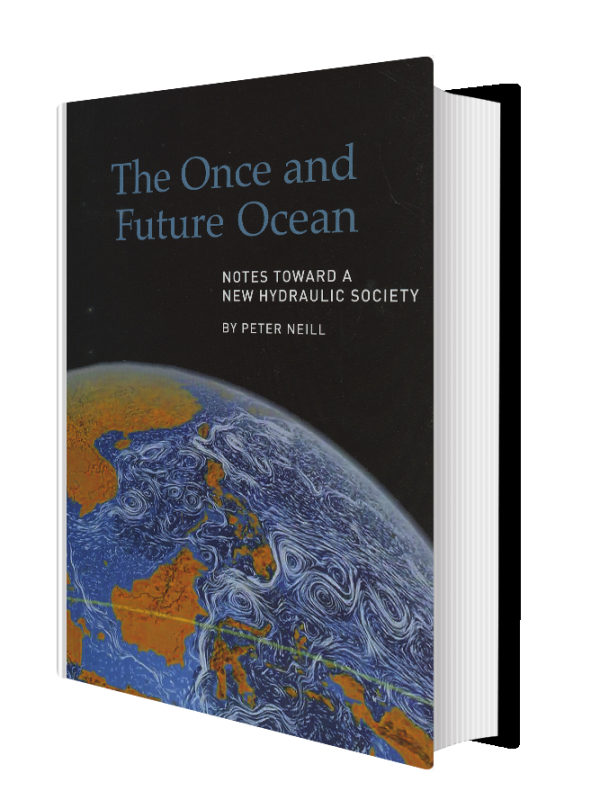A New Hydraulic Society: The World Water Cycle and the Benefit for Mankind
Published on by Peter Neill, Director, World Ocean Observatory in Academic
'Given its ubiquitous demand and its limited supply, water must be the core substance and value for a new 21st-century paradigm: a new hydraulic society'.

The water crises as happened in Flint, Michigan, and that are happening in many other places in the United States and around the world have generated a spate of comments and opinions focusing on the history of indifference to our water management systems and the technological and political fixes required to redress the localized problem. All good, but is it good enough?
Water is the most valuable commodity on earth—not oil, not diamonds, not gold—but the water that each one of us, of every origin, class, location, or ideology must have daily, in equal amount, to survive. As such, it is a universal human right that demands equitable and just distribution, valuation, and conservation if we are to endure as a civil society.
We see intimations of the alternative in Flint and the United States as well as in the Middle East, Asia, Africa, and South America where the absence of water is evident and the presence of adequate supply must ultimately serve to maintain food, hygiene, health, security, stability, and continuity of life.
We have and continue to live by a 19th century paradigm: unlimited growth to support consumption driven by fossil fuels. There can be no denying that this system has benefited the world enormously in many ways, but whatever the positives, they are now overwhelmed by the negatives. This old paradigm of unlimited growth is exhausted, and the world is searching desperately for a new organizing principle. All vestigial resistance to this change is motivated by fear, financial interest, and political inertia.

Given its ubiquitous demand and its limited supply, water must be the core substance and value for a new 21st century paradigm: managed growth to support sustainability driven by water in all its manifestations in support of all the processes and procedures that we need to respond to increasing future population and the predictable social disruption to come if we fail. We need to reorganize our world as a new hydraulic society .
The technology, capital, and organizational capacity exists today to meet that goal. What is lacking is the political will. But isn’t it amazing how politics can change when the public understands the real and present danger of failure to act by its governments, corporations, associations, communities, and individuals? The impact of the California drought is a case in point: a radical shift in government attitude, statutory response, management reorganization, and reduction of use by some 20% almost immediately when it became clear that failure to respond and radically change the status quo amplified and guaranteed disaster. To ignore a problem of this magnitude when there is a responsible alternative in hand is unconscionable; change will follow, one way or another.
History has given us examples of great civilizations which have flourished and fallen by the management and mismanagement of water. In our globalized world, its fluent demography, integrated finance, and evident need for trans-national governance, we have another path to follow.
We can use the necessity of water to govern and build a new society where sustainability and security come first by right and we can create enduring communities and institutions that will sustain rather than squander our natural resources and enable our children’s future. It is not a debatable choice when viewed in the context of survival.
This new hydraulic society will be based on the recognition of the world water cycle—from mountaintop to watershed and aquifer to coast and abyssal plain to atmosphere and weather to mountaintop again—as the enabling dynamic for the future.
The ocean is the penultimate reservoir, and to it we will inevitably turn as the old world collapses painfully around us, for fresh water, as well as for food, energy, health, security, family, community, and culture. The ocean can no longer be viewed as a place apart into which we can discard our pollutants and waste and exhausted ideas.
Rather it must be viewed as the consummate commodity of the highest use, advantage, and value, not to be conventionally parsed and traded, but to be recognized, affirmed, and released as the force for a new system of valuation, organizational structure, and human behavior for the benefit of all mankind.
- - -

A New Hydraulic Society is an excerpt from "The Once and Future Ocean: Notes Toward a New Hydraulic Society" by Peter Neill.
Published in April 2016.
Media
Taxonomy
- Public Health
- Resource Management
- Water Access
- Water Resource Management
- Hydrology
- Environment
- Sustainable Water Resource Management
- Access
- Water Supply
- Water Resource Management
- sustainable development goals